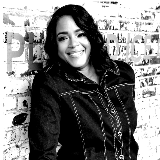Good notetaking is absolutely vital in healthcare, where accuracy and clarity directly affect patient safety and treatment results. Accurate, concise, and orderly medical documentation guarantees that healthcare teams may obtain the data they need to deliver the best possible treatment.
The job of a medical scribe highlights the need for good notetaking. Medical scribes free doctors’ time so they may concentrate on patient care by helping with thorough documentation. This function emphasizes how simplified notetaking improves efficiency and facilitates improved communication inside medical teams.
Use Structured Templates
Using organized templates catered to their field of work will help healthcare professionals enhance notetaking. Templates guarantee all necessary elements are included and help logically arrange information. Consistent documentation is maintained while pre-defined parts for patient history, diagnosis, and treatment plans save time.
Templates also reduce the possibility of forgetting important information since standardized forms serve as providers’ checklists. Better data analysis made possible by consistency in documentation helps to enhance decision-making and the results of treatment.
Leverage Technology
Using technology like electronic health records (EHR) systems might completely change how doctors note things. EHRs allow smooth departmental interaction, instantaneous upgrades, and fast data entry. Voice-to-text and predictive text improve notetaking efficiency, saving time on hand-written documentation.
EHRs also support real-time patient data access, allowing healthcare providers quick access to enable educated judgments. Including sophisticated capabilities like artificial intelligence in EHR systems helps to simplify notetaking and analysis even more.
Focus on Clarity and Conciseness
Notes with ambiguity or too much detail can impede good healthcare professional communication. To guarantee correctness, pay close attention to briefly and clearly capturing relevant material. Short words or bullet points enable one to communicate important information rapidly without compromising quality.
Clarity in documentation lowers the possibility of misinterpretation, particularly in high-stakes medical situations. Clear, succinct notes also allow medical personnel to evaluate a patient’s condition rapidly and offer appropriate treatments.
Prioritize Real-Time Documentation
Documenting patient interactions in real-time reduces the likelihood of errors or omissions. Recording notes immediately after a consultation ensures details are fresh and accurate. This practice improves workflow and ensures records are up-to-date for subsequent care.
Real-time documentation also saves time during follow-up appointments, as the information remains clear and readily available. It reduces the burden of recalling past details, which may lead to inaccuracies when done later.
Train in Medical Terminology
A solid understanding of medical terminology is crucial for effective notetaking in healthcare. Accurate usage of terms ensures that medical teams understand notes precisely and universally. Regular training sessions or refresher courses in medical language help improve documentation quality.
Training in medical terminology also benefits new healthcare professionals or team members transitioning to new specialties. With this knowledge, documentation becomes faster, more accurate, and better aligned with the standards of care.
Review and Edit Regularly
Reviewing and editing notes ensures accuracy and completeness before they are finalized. Double-checking information minimizes the risk of errors and helps maintain professionalism in documentation. Establishing a habit of reviewing notes also reinforces attention to detail.
Frequent reviews allow healthcare providers to identify patterns in patient care, which can guide future treatments. This practice also helps maintain consistency in language and format, improving the overall quality of medical records.
Collaborate with Scribes
Working with medical scribes will help healthcare professionals effectively take notes. Scribes focus on accurately and comprehensively gathering patient data throughout consultations. This cooperation will improve workflow, allowing providers to concentrate on patient care and guarantee high-quality documentation.
Medical scribes free doctors from the technical side of documentation by bringing some EHR system management experience. Their help guarantees that records are complete and orderly and increases notetaking speed.
Why Effective Notetaking Matters in Healthcare
Effective delivery of healthcare depends mostly on accurate notetaking. Through a thorough record of patient history and therapies, proper documentation guarantees continuity of treatment. A consistent paper trail also helps with legal compliance and guards against liabilities.
Furthermore, effective notetaking facilitates improved communication in medical teams. Well-organized and clear records help physicians coordinate perfectly, thereby improving patient outcomes. Providers and patients gain from the time and effort invested in better notetaking techniques.
Building Better Healthcare Documentation Systems
Making technologies that enable effective notetaking a top priority for healthcare institutions should be a. Using templates, technology, and teamwork will help to change documentation procedures. Regular assessments and staff training help to guarantee the constant meeting of high standards of correctness and clarity.
These techniques can help healthcare teams improve their notetaking techniques and produce a more dependable documentation system. Eventually, improved healthcare documentation helps to produce fewer errors, improve patient care, and simplify processes.








